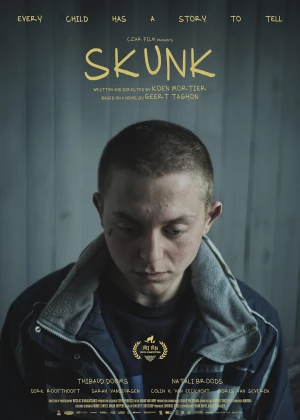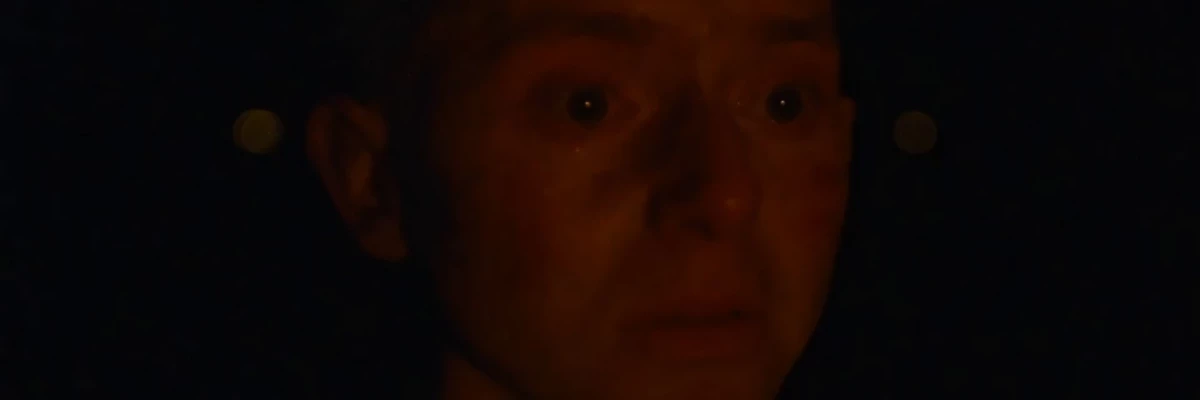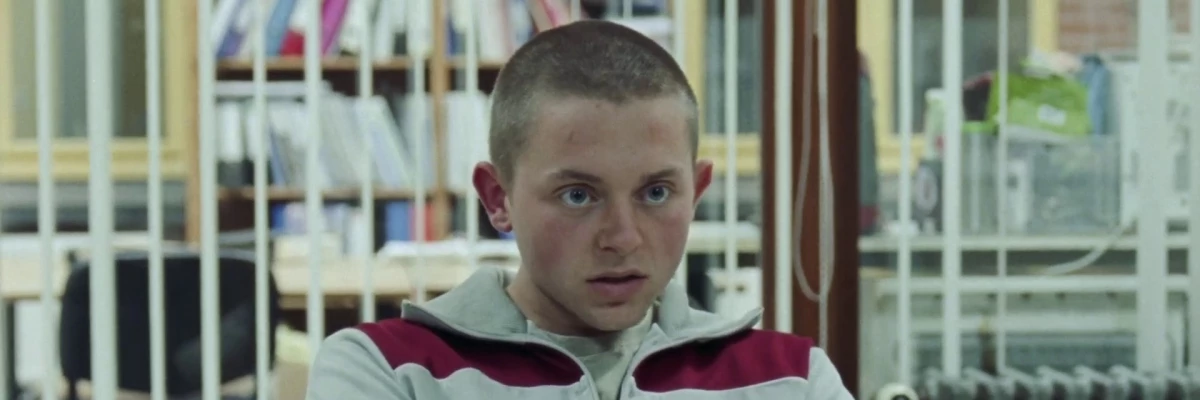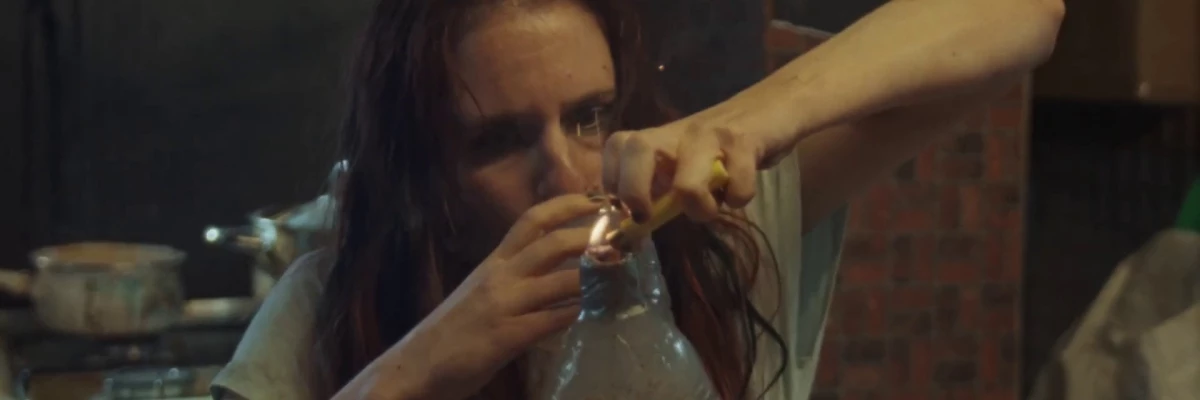Skunk

Koen Mortier is one of our national treasures, so I take notice whenever he has a new film out. Skunk is only his fourth feature film, but Mortier has a distinctive signature that runs throughout everything he does, just to say that my expectations were considerable going in. I knew this would be a more serious drama, with less room for his usual directorial shenanigans. Still, Mortier found a good balance between the two and continued his winning streak. It's hard to gauge how the film will translate to an international audience, but it's worth a shot regardless.

Mortier launched himself with Ex Drummer, sometimes referred to as the Flemish Trainspotting. And that's a pretty apt comparison, even when considering Mortier's broader oeuvre. He loves to dive into society's seedy underbelly, to focus his camera on the unpretty things, and to languish into their unpleasantness. It's not the type of cinema everyone is going to appreciate, but Mortier does it with so much flair and glee that he can be considered one of the best in the business. Skunk goes down that same path, only putting more weight on drama over genre.
Skunk is based on a novel by Geert Taghon, which in turn drew inspiration from real-life events. It offers a glimpse into the lives of kids who are forced out of their home environment to go and live in shelters. When their parents are unable to take care of their children (or their upbringing is simply abhorrent), this is often the only way out for these kids, even though it's hardly an ideal solution. Be prepared for some tough drama in other words, this isn't the film to give you an easy way out of the mess some people tend to create for themselves.
Liam is a young boy whose parents have failed to give him a proper home. They organize raunchy sex gatherings, they are boozed up and drugged up half the time and they give him physical beatings whenever they feel like it. He does poorly in school, and when social workers come around to check up on him, they find that his home situation isn't sustainable anymore. Liam is taken to a shelter for teenagers, but things are tough there too. The caretakers do their best to bond with the children, but rivalry and malice are prevalent and Liam's struggles continue.

With more focus on drama, the film tones down the visual frivolities ever so slightly. Mortier still picks his moments though, and with Nicolas Karakatsanis handling the cinematography, you can be assured the film looks the part. Skunk has a pretty raw and gritty exterior, but Karakatsanis finds beauty there, and when genre does take the lead the visuals shift gears right away. It's not Mortier's best-looking film and I wouldn't have minded just a little extra visual prowess, but that's just advanced nitpicking. There's plenty of beauty here, even if it's not the traditional kind.
The soundtrack and sound design don't lag behind, which is not unimportant. Too many of Skunk's peers fall back on tragedy and performances and leave it at that, neglecting other vital aspects of cinema. Mortier found a good match in Belgian post-metal band Amenra to handle the original score, but the soundtrack too is killer. The music is always used with purpose and it often leads the dance, not just adding to the atmosphere, but actively commanding it. Additional points for nailing the local dialects by the way, though I imagine that's mostly a perk for Belgian audiences only.
Getting younger actors to perform on camera, let alone carry a film, isn't always easy. All the more props to Thibaud Dooms as he absolutely killed it. His rendition of Liam is intense, as he captures the victim aspect of his role as well as the struggle to become "a good person". Seasoned actors like Broods and Roofthooft do a good job rounding out the cast, but of all the secondary cast members it's Liam's parents who leave the biggest impression. They did have rather thankful roles, but they fully committed to them and delivered some of the most depraved people I've seen in quite a while.

While this could've been a strong and successful drama, minor but notable genre injections give the film that extra bit of bite. Not everyone is going to appreciate them, especially those looking for a more realistic and down-to-earth film, but for me, they were essential in setting the film apart from so many others. The ending in particular should prove to be quite divisive, as it is the most intense and emotionally dubious scene. Safe to say Skunk is somewhat of an acquired taste, then again, that's why someone like Koen Mortier stands out from the crowd.
There aren't that many films that manage to combine gritty drama with a polished presentation, for that reason alone Skunk is worth seeking out, even when it doesn't quite reach the same extremes found elsewhere in Mortier's oeuvre. Thanks to the raw cinematography, the polished sound design, and some stellar performances it hits all its emotional notes, without failing its cinematic roots. Mortier hasn't made a bad film so far and continues his winning streak with Skunk, making him one of the best Flemish directors out there. Well recommended.